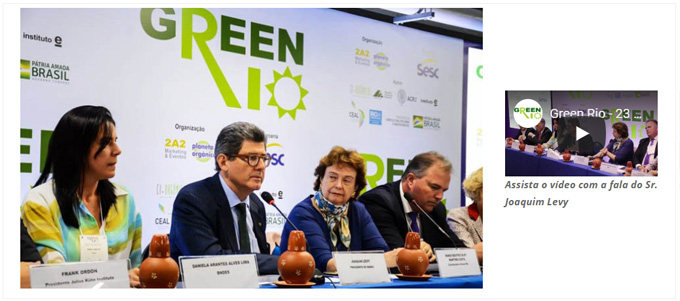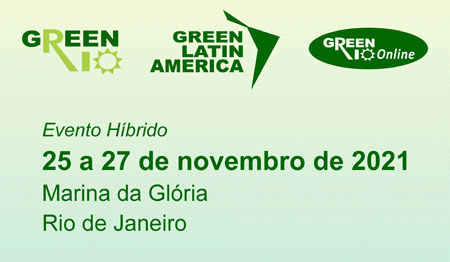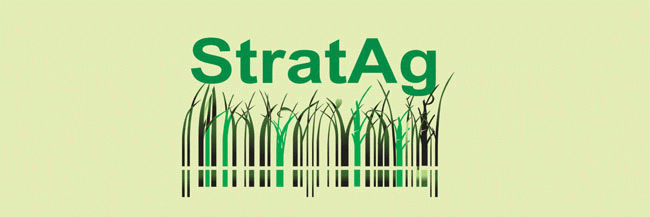
|
Green Rio recognized internationally as one of the most important bioeconomy events in Brazil. |
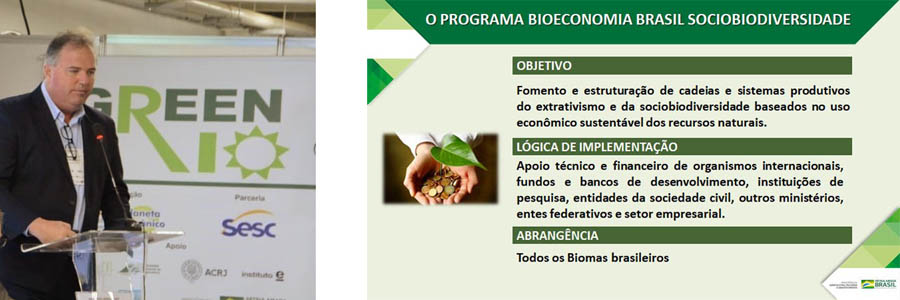
The Secretary of Family Agriculture and Cooperativism, Fernando Schwanke, launched during Green Rio the Brazilian Sociobiodiversity Bioeconomy Program. This is the first country BIOECONOMY program focused on structuring productive systems based on the sustainable use of biodiversity and extractivism, aiming at expanding the production and use of energy from renewable sources.
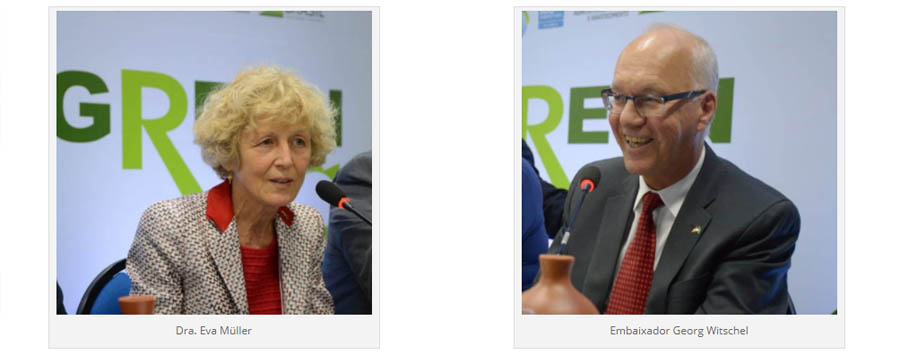
At the opening of the event, the German Ambassador, Dr. Georg Witschel, pointed out that “Green Rio has become an excellent platform for bilateral exchange in the area of bioeconomy”. Dr. Eva Muller, Director General of the German Ministry of Agriculture, stated that “Green Rio brings together many different stakeholders in policy, research and society and is therefore the ideal platform to talk about product-based solutions in the bioeconomy. “
Fernando Schwanke was the keynote speaker of the event with the lecture “Bioeconomy and Family Farming: Perspectives for the next decade.”
The Ministry of Agriculture, Livestock and Food (MAPA) Supply brought a significant delegation to Green Rio 2019 for both the Green Rio Conference and its booth, where it promoted various activities. Visitors participated in the rounds of conversations whose themes ranged from Medicinal Plants to Urban Agriculture. Meetings of entrepreneurs were also held in the MAPA booth , approaching companies of producers of Family Agriculture.
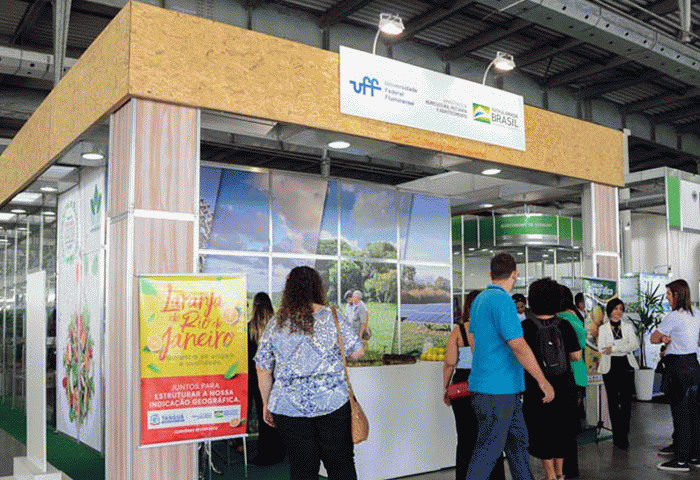
One of the highlights of the MAPA booth was the signing of the Protocol of Intention to Purchase Pink Pepper from the Ademar Medeiros Settlement, from São Pedro da Aldeia by the organic cosmetics company CATIVA NATUREZA (Paraná). The event meant the entry of the product into the national market and represents another achievement, the result of the work of GT-Aroeira, which brings together technicians from the town hall and several environmental entities and institutes, technical assistance and research, such as Fiocruz, Emater- Rio, Inea, Senar, MAPA, among others. This approach between the Ademar Medeiros Settlement and CATIVA NATUREZA began at Green Rio 2018, and witnessing the results planted and collected during this event is a source of great satisfaction to its organizers.
_________________________________________________________________________________________________________
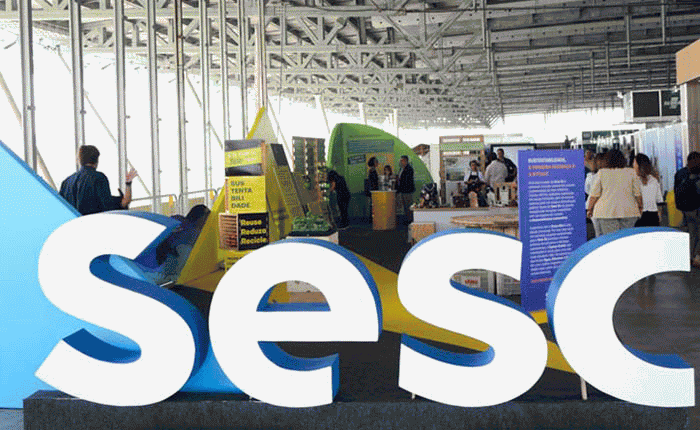
SESC also attracted visitors to the various workshops it held in its booth, which was designed in a format that led to an exhibition circuit with informative content in 3 axes:
1) Water: a circuit contemplating from the source of the water to the formation of the rivers, with information from the amount of fresh and salt water on the planet to the pollution of the seas, rivers and water tables, underlining the imperative need of basic sanitation.
2) Food: information on the chain of food waste; and alternative foods such as unconventional food plants (PANCs). Relevant data were also presented on the work of Mesa Brasil and the importance of the project for SESC and for the institutions served.
3) Waste: information on the amount of waste generated by the Brazilian per day, what is recycled, what is recyclable or not, and number of municipalities with selective waste collection in Brazil, etc.
These themes were also presented by SESC at the Green Rio 2019 Conference, where MESA BRASIL was highlighted. During Green Rio, there was a meeting of Regional Director of SESC RIO, Regina Pinho and her team, with the Director of the Department of Productive Structures of the Secretariat of Family Agriculture and Cooperativism, Avay Miranda, about an approximation of MESA BRAZIL with the initiatives that will be promoted in the Bioeconomy Brazil Sociobiodiversity Program.
On May 25, in the space of the Business Rounds, the activity “SESC / Dr. Saúde em 3 Tempos” was held with the participation of visitors.
_________________________________________________________________________________________________________
For the second time Germany had its own booth at Green Rio, where it presented the bioeconomy programs it promotes, among them BIOMASS. In the second half of 2019, the second phase of the Bioeconomy 2030 program should be launched, which encourages research in the bioeconomy scenario.
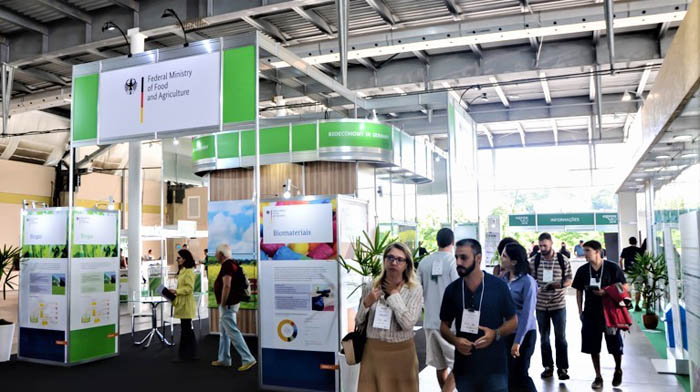
The German bioeconomy delegation, led by the Director General of the German Ministry of Agriculture, Dr. Eva Müller, had the opportunity to speak with representatives of several segments of the Brazilian bioeconomy sectors, from the Ministry of Agriculture and EMBRAPA to Fiocruz, FINEP, identifying potential partnerships and articulating possible missions to Germany. Dr. Frank Ordon, president of the Julius Kühn Institut, accompanied by researchers was also part of the German delegation at Green Rio 2019 and attended several bilateral meetings inside and outside the German booth.
On May 24, the third German-Brazilian Bioeconomy Workshop was held in Green Rio, where scenarios of the Bioeconomy of Brazil and Germany were presented and bilateral cooperation terms were signed:
- between FINEP and FNR, a strategic Brazil-Germany partnership in the bioeconomy scenario
- the signing of a Letter of Intent between Embrapa and Julius Kühn Institut
- the signing of Memorandum of Understanding between Embrapa and DBFZ
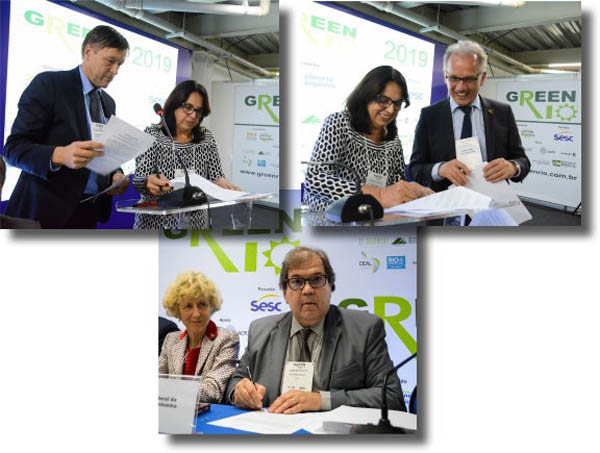 _________________________________________________________________________________________________________
_________________________________________________________________________________________________________
In addition to the launch of the BIOECONOMY BRAZIL – SOCIOBIODIVERSITY Program, during the Green Rio 2019 the 2nd Edition of the BNDES Good Practices for Traditional Agricultural Systems was launched, with the presence of BNDES president Joaquim Levy (Brazilian development bank).This award aims to recognize and disseminate good practices for the safeguarding and conservation of intangible cultural assets associated with agrobiodiversity and socio-biodiversity.
In a brief statement to journalist André Trigueiro / GloboNews, Levy praised the fact Green Rio gathers market and academics to discuss environment.
Rita Milagres, Head of the Secretariat of Intelligence and Strategic Relations of Embrapa, representing Embrapa, promoted on this occasion the launch of the book
In the same panel “Bioeconomy and Biodiversity”, where the launches of the Brazilian Sociobiodiversity Bioconomy Program and the 2nd Edition of the BNDES Good Practices for Traditional Agricultural Systems, the president SESC RIO, Antonio Queiroz Filho, highlighted the launch of the VISION AWARD CONSCIOUS, a Fecomércio RJ program of awards for companies that have responsible and sustainable actions in their businesses.
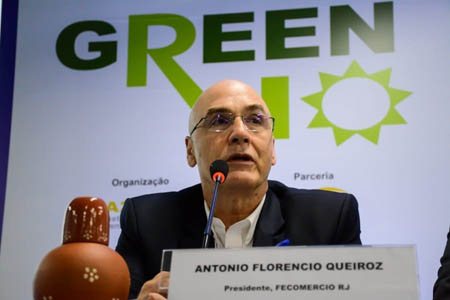
_______________________________________________________________________________________________________
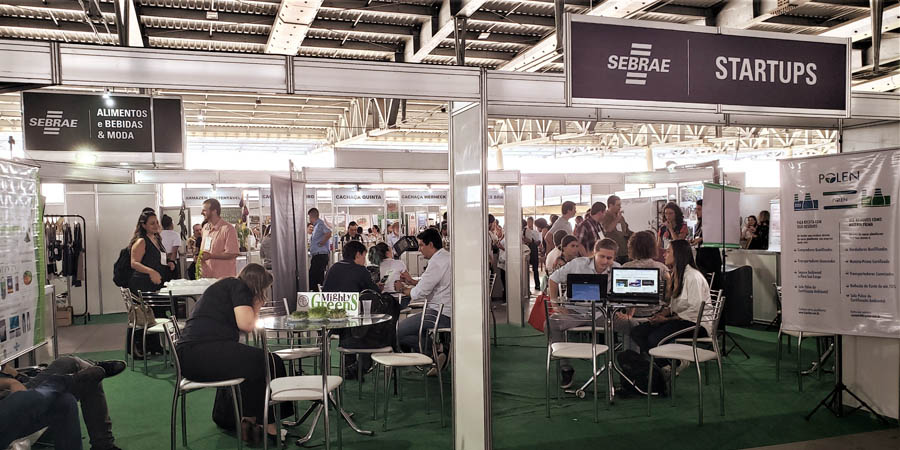
Green Rio had the second pitch with biostartups in partnership with Sebrae. Participants were part of the projects at the Sebrae biostartups booth in the State of Rio de Janeiro. The pitch was attended by special participants from the State University of Amazonas (UEA). The winner was the Terrestrial Vitamin from the State of RJ that produces an organic fertilizer.
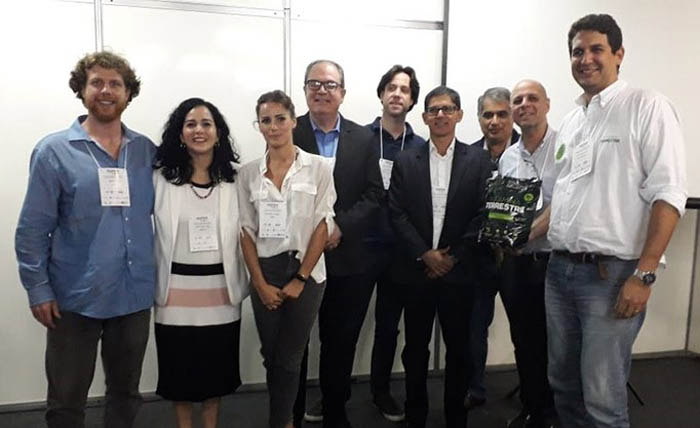
For the first time, there was also at the event a green business challenge with Sai do Papel accelerator in partnership with Green Rio. Entrepreneurs with the best ideas presented projects through a pitch in Green Rio’s Bio2B space. winner was Geofiltros, who presented a project aimed at improving water quality in oil and gas production.

Check out next week the presentations of the Green Rio 2019 Conference authorized for dissemination by the respective speakers as well as a subject on the exhibitors, and the topics covered in the auditorium and other lecture halls of the event.
Once again, Green Rio is consolidating itself as the platform of the bioeconomy in Brazil, and we thank everyone who contributed to this success!
_________________________________________________________________________________________________________

